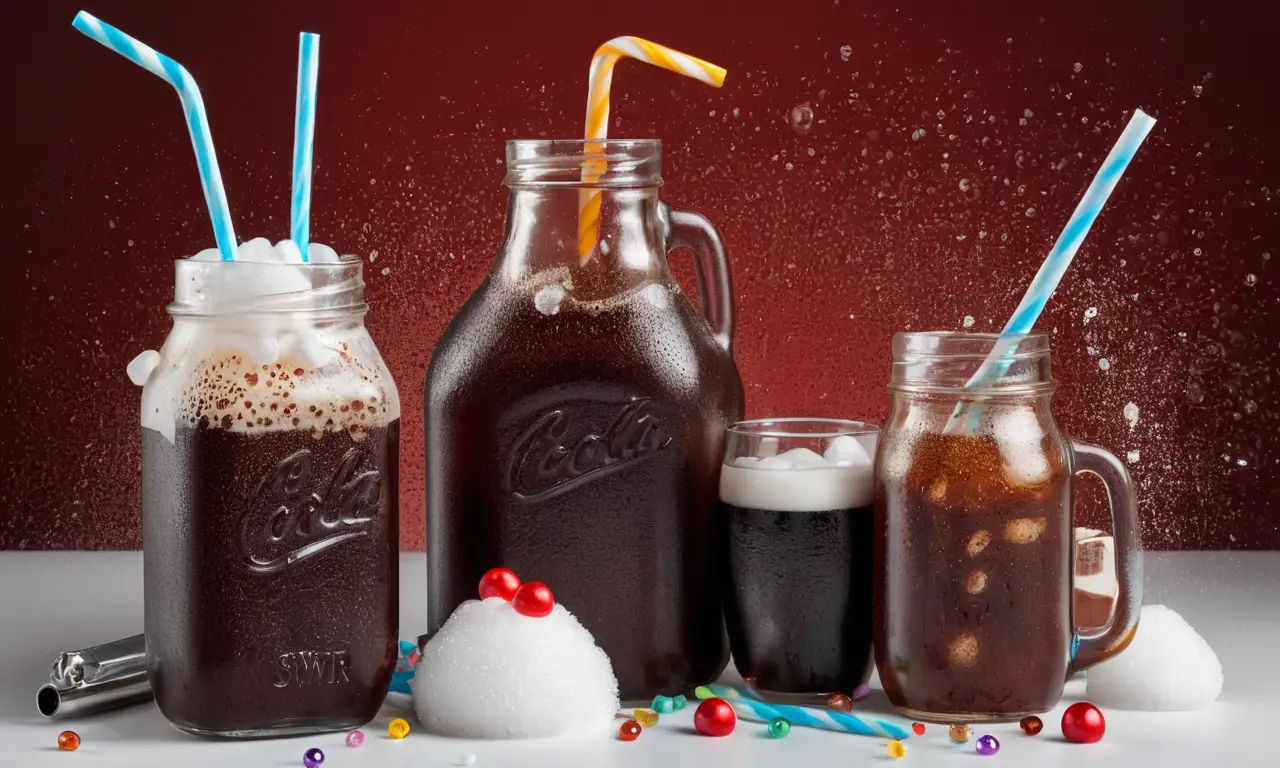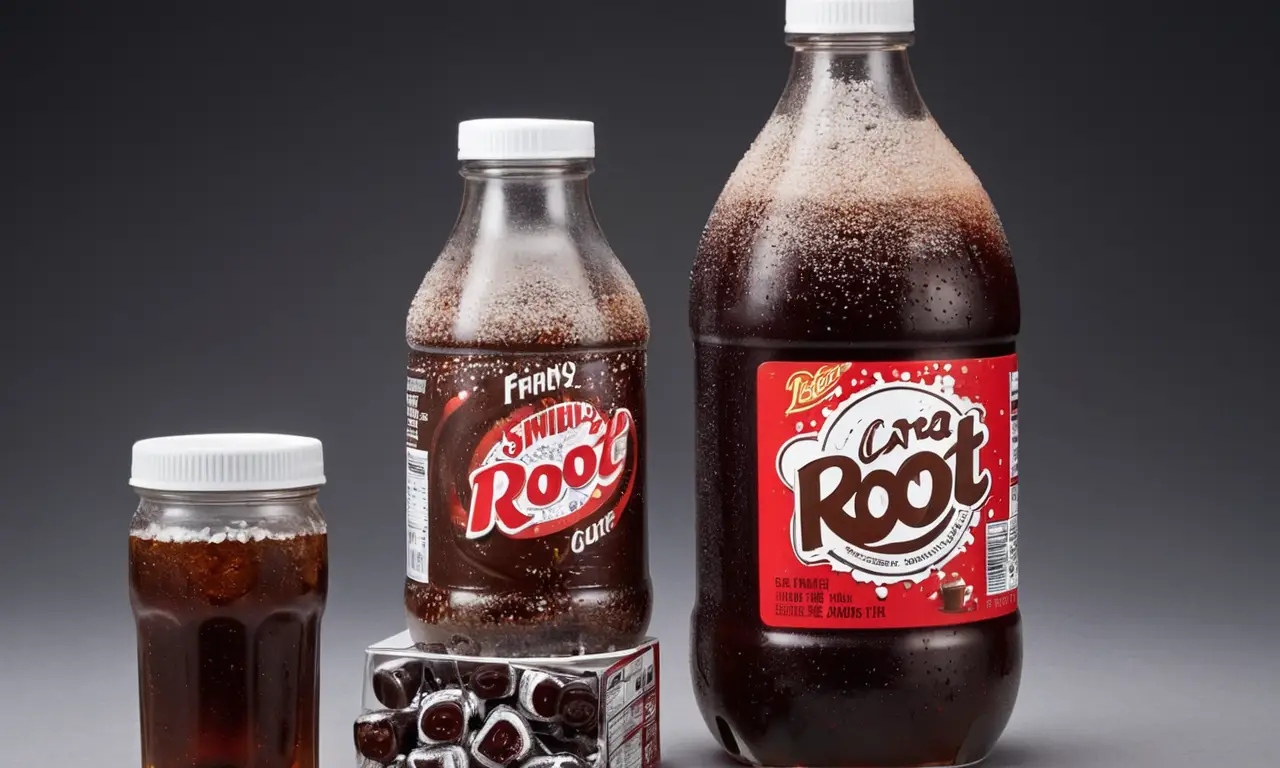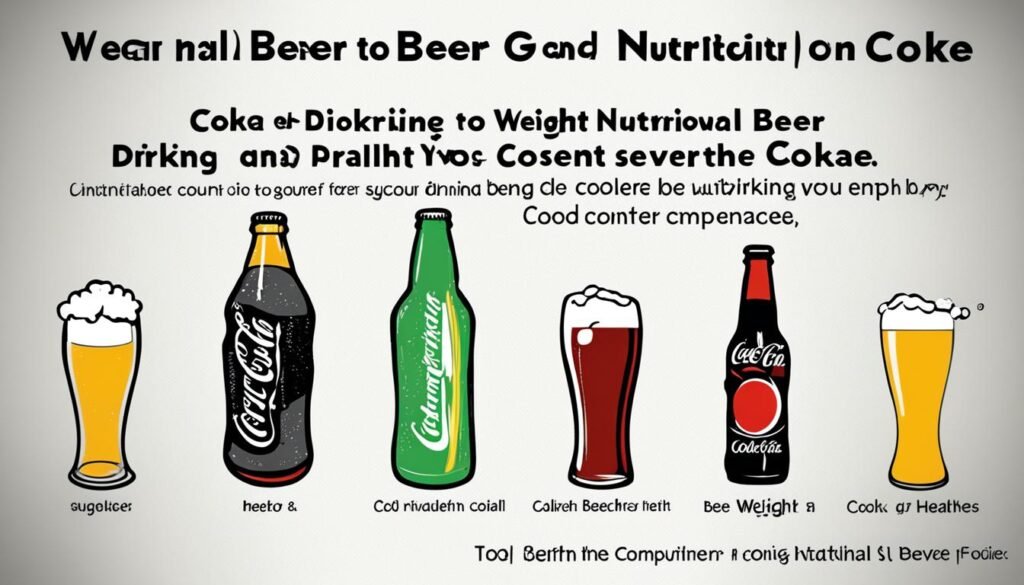The classic cola versus root beer debate has been raging for decades, with each beverage boasting a loyal following. While both are undeniably refreshing and often enjoyed as summertime staples, one key difference sets them apart: their sugar content and flavor profiles. This article delves into the sugary showdown between sugar in root beer vs coke, exploring the variations in sweetness, taste nuances, and health implications of these beloved drinks.
This comprehensive comparison will analyze the sugar content in different brands and sizes of both root beer and Coca-Cola, dissect their distinct flavor profiles, and examine the availability of diet options for those seeking lower-sugar alternatives. We’ll also touch upon the potential health considerations associated with excessive consumption of either beverage.
Root Beer vs Coca-Cola
At first glance, root beer and Coca-Cola appear to be polar opposites. Root beer, with its distinctive sassafras flavor and creamy texture, evokes a sense of nostalgia and Americana. Coca-Cola, on the other hand, is known for its bold caramel notes and iconic red branding, representing a more mainstream and globally recognized beverage.
Despite their contrasting identities, both root beer and Coca-Cola share a common thread: they are primarily carbonated soft drinks sweetened with sugar. While Coca-Cola has maintained its classic formula for over a century, the world of root beer is more diverse, encompassing various brands and flavor variations. Some root beers incorporate natural sassafras extract, while others rely on artificial flavorings to achieve that characteristic taste.
Sugar Content Comparison

The amount of sugar in root beer vs coke can vary significantly depending on the brand, size, and type of beverage. However, general trends emerge when comparing these popular drinks. Coca-Cola typically contains around 39 grams of sugar per 12-ounce serving, while root beer often boasts a slightly higher sugar content, averaging around 40-50 grams per 12-ounce serving.
It’s important to note that these figures are estimates and can fluctuate based on specific brands and formulations. For instance, diet versions of both Coca-Cola and root beer significantly reduce the sugar content, often replacing it with artificial sweeteners. Consumers seeking lower-sugar options should carefully review nutrition labels to determine the actual sugar content per serving.
Factors Affecting Sugar Content
Several factors influence the sugar content in both root beer and Coca-Cola:
- Brand: Different brands may use varying amounts of sugar to achieve their desired sweetness level.
- Size: Larger servings naturally contain more sugar than smaller ones.
- Type: Regular versions typically have higher sugar content compared to diet or zero-sugar options.
Flavor Profiles
The taste distinction between root beer and Coca-Cola is perhaps the most defining characteristic separating these two beverages. Coca-Cola’s flavor profile centers around a rich caramel base, often described as having notes of vanilla, citrus, and spice. This complex blend creates a bold and satisfyingly sweet taste that has become synonymous with the brand.
Root beer, on the other hand, offers a more unique and multifaceted flavor experience. The traditional sassafras root extract imparts a distinct earthy and slightly medicinal aroma, often accompanied by hints of licorice, vanilla, and wintergreen. Some brands incorporate additional spices like cinnamon, nutmeg, or clove to enhance the complexity of the flavor profile.
Subjective Taste Preferences
Ultimately, the preference between root beer and Coca-Cola boils down to individual taste preferences. Some individuals gravitate towards the bold caramel sweetness of Coca-Cola, while others find solace in the more complex and nuanced flavors of root beer.
Diet Options

Recognizing the growing health consciousness among consumers, both Coca-Cola and root beer manufacturers offer diet versions of their popular beverages. These options typically replace sugar with artificial sweeteners like aspartame or sucralose, significantly reducing the calorie and carbohydrate content.
Diet Coca-Cola maintains a similar flavor profile to its regular counterpart, albeit with a slightly less intense sweetness. Diet root beer often retains the characteristic sassafras flavor but may have a slightly different aftertaste due to the presence of artificial sweeteners.
Health Considerations
While both root beer and Coca-Cola can be enjoyed in moderation as part of a balanced diet, excessive consumption of these sugary beverages can pose potential health risks. The high sugar content contributes to weight gain, tooth decay, and an increased risk of chronic diseases such as type 2 diabetes and heart disease.
Furthermore, the artificial sweeteners found in diet versions have been subject to ongoing debate regarding their long-term health effects. While they may reduce calorie intake, some studies suggest potential links between artificial sweeteners and gut microbiome disruption, metabolic disorders, and even an increased risk of certain cancers.
Conclusion
The sugar in root beer vs coke comparison reveals distinct differences in sweetness, flavor profiles, and health implications. Coca-Cola’s bold caramel taste and higher sugar content cater to those seeking a classic cola experience, while root beer’s unique blend of sassafras and spices offers a more complex and refreshing alternative. Both beverages come in diet versions for those seeking lower-sugar options, but it’s crucial to remember that moderation is key when consuming any sugary drink. By understanding the nuances of these popular beverages, consumers can make informed choices that align with their taste preferences and health goals.



